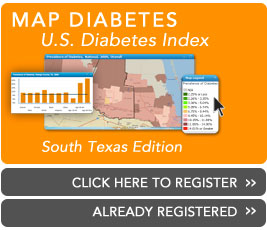Posted by Staff
News
Wednesday, August 28th, 2013
Starting on October 1, 2013, individuals and families have a new opportunity to buy health insurance through a Health Insurance Marketplace (Marketplace) available in every state.
Coverage purchased in the Marketplace will be effective as early as January 1, 2014.
Starting in 2014, all new health insurance plans, whether sold inside or outside the Marketplace, cannot deny coverage, charge more, or refuse to cover treatments because you or someone in your family has diabetes.
People who meet certain income requirements may also qualify for help paying their premiums and other costs for plans purchased in the Marketplace. Read more
Posted by Staff
News
Wednesday, August 28th, 2013
JAMA: August 21, 2013
Importance The increased prescribing of antipsychotics for children and youth has heightened concerns that this practice increases the risk of type 2 diabetes mellitus.
Objective To compare the risk of type 2 diabetes in children and youth 6 to 24 years of age for recent initiators of antipsychotic drugs vs propensity score–matched controls who had recently initiated another psychotropic medication.
Design, Setting, and Participants Retrospective cohort study of the Tennessee Medicaid program with 28 858 recent initiators of antipsychotic drugs and 14 429 matched controls. The cohort excluded patients who previously received a diagnosis of diabetes, schizophrenia, or some other condition for which antipsychotics are the only generally recognized therapy.
Main Outcomes and Measures Newly diagnosed diabetes during follow-up, as identified from diagnoses and diabetes medication prescriptions. Read more
Posted by Staff
News
Wednesday, August 28th, 2013
Institute for Health Promotion Research: 8/16/13
SAN ANTONIO, Texas (Aug. 20, 2013)—Diabetes and obesity are the two most significant health threats in South Texas, according to a new report published online in Springer Open Books by the Institute for Health Promotion Research (IHPR) in the School of Medicine at The University of Texas Health Science Center at San Antonio. The South Texas Health Status Review, originally self-published in 2008, was updated this year to study more than 35 health conditions and risk factors and how people in South Texas may be differently affected than those in the rest of Texas or nation. Read More
Posted by Staff
News
Wednesday, August 28th, 2013
JAMA: 8/14/13
Importance Depression has been identified as a risk factor for dementia among patients with type 2 diabetes mellitus but the cognitive domains and patient groups most affected have not been identified.
Objective To determine whether comorbid depression in patients with type 2 diabetes accelerates cognitive decline.
Design A 40-month cohort study of participants in the Action to Control Cardiovascular Risk in Diabetes–Memory in Diabetes (ACCORD-MIND) trial.
Setting Fifty-two clinics organized into 6 clinical networks across the United States and Canada.
Participants Two thousand nine hundred seventy-seven participants with type 2 diabetes at high risk for cardiovascular events. Read more
Posted by Staff
News
Wednesday, August 28th, 2013
Ajcn: 8/14/13
Background: The association between intake of dairy products and the risk of type 2 diabetes has been investigated in several studies, but the evidence is not conclusive.
Objective: We conducted an updated systematic review and dose-response meta-analysis of dairy product intake and the risk of type 2 diabetes.
Design: We searched the PubMed database for prospective cohort and nested case-control studies of dairy product intake and risk of type 2 diabetes up to 5 June 2013. Summary RRs were estimated by use of a random-effects model. Read more
Posted by Staff
News
Wednesday, August 28th, 2013
PLOS: 8/7/13
Previous studies have suggested that some pet dogs respond to their owners’ hypoglycaemic state. Here, we show that trained glycaemia alert dogs placed with clients living with diabetes afford significant improvements to owner well-being. We investigated whether trained dogs reliably respond to their owners’ hypoglycaemic state, and whether owners experience facilitated tightened glycaemic control, and wider psychosocial benefits. Since obtaining their dog, all seventeen clients studied reported positive effects including reduced paramedic call outs, decreased unconscious episodes and improved independence. Owner-recorded data showed that dogs alerted their owners, with significant, though variable, accuracy at times of low and high blood sugar. Read more
Posted by Staff
Minority Diabetes Reports
Wednesday, August 28th, 2013
ADA: 8/23/13
Awake and fed thermogenesis (AFT) is the energy expenditure (EE) of the non-active fed condition above the minimum metabolic requirement during sleep, and is composed of the thermic effect of food and the cost of being awake. AFT was estimated from whole room 24-h EE measures in 509 healthy subjects (368 Native Americans and 141 Whites) while subjects consumed a eucaloric diet. Follow-up data was available for 290 Native Americans (median follow-up time: 6.6 years). Read more



























